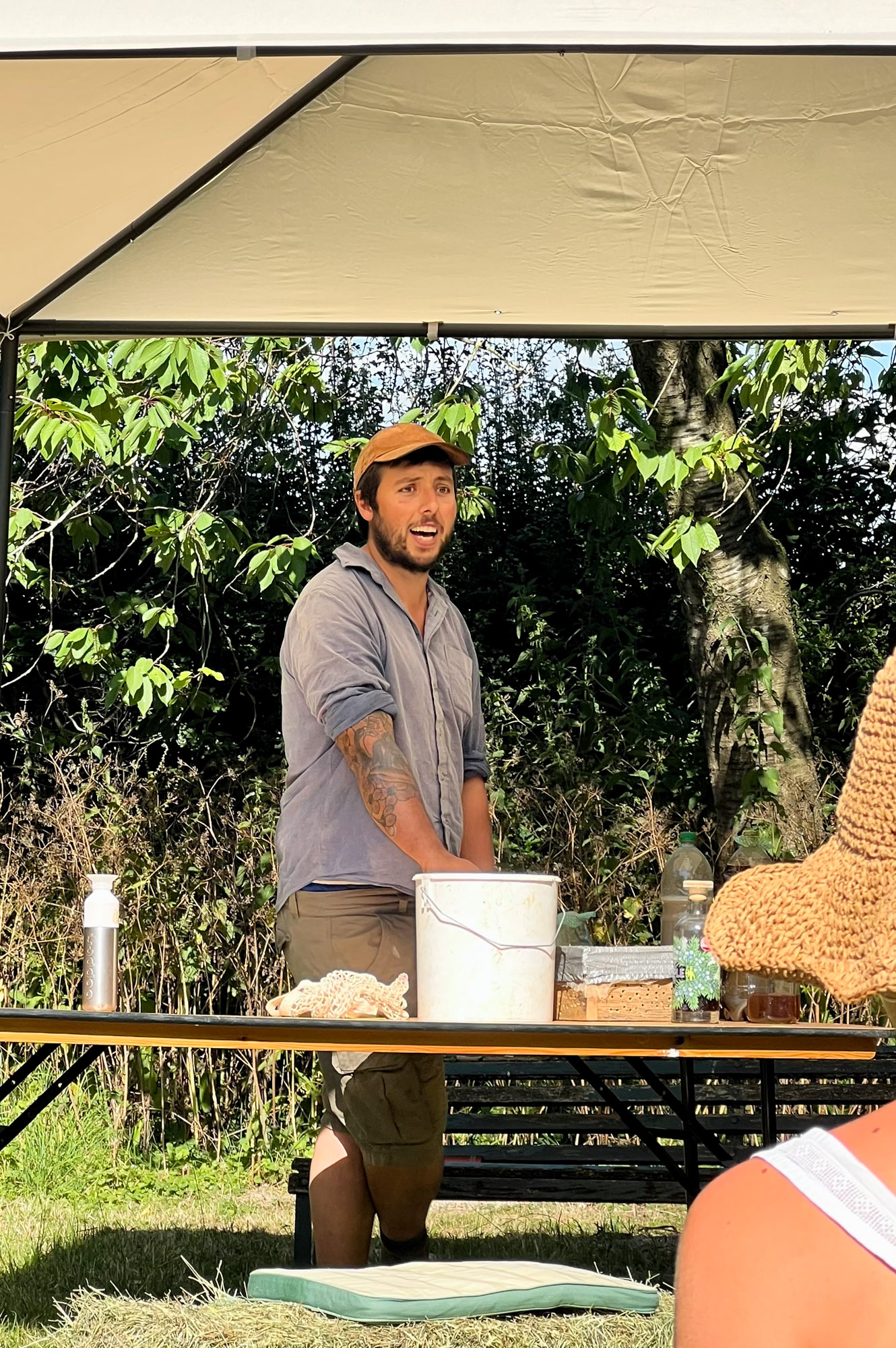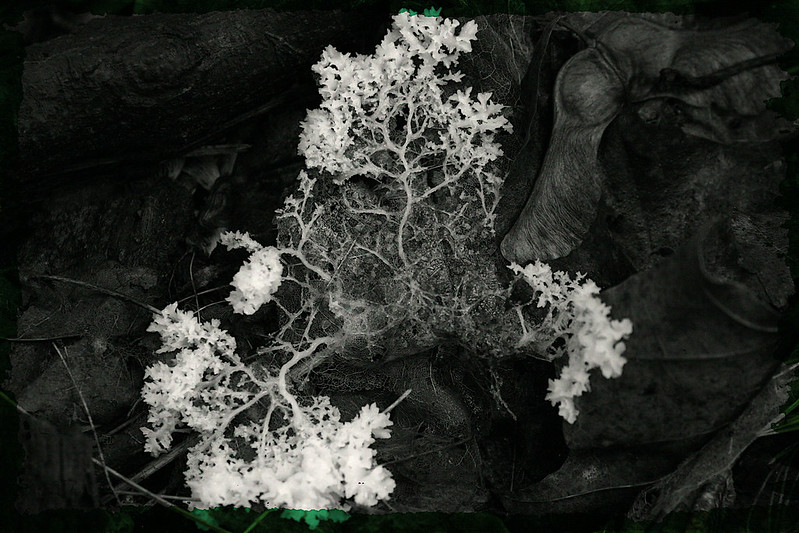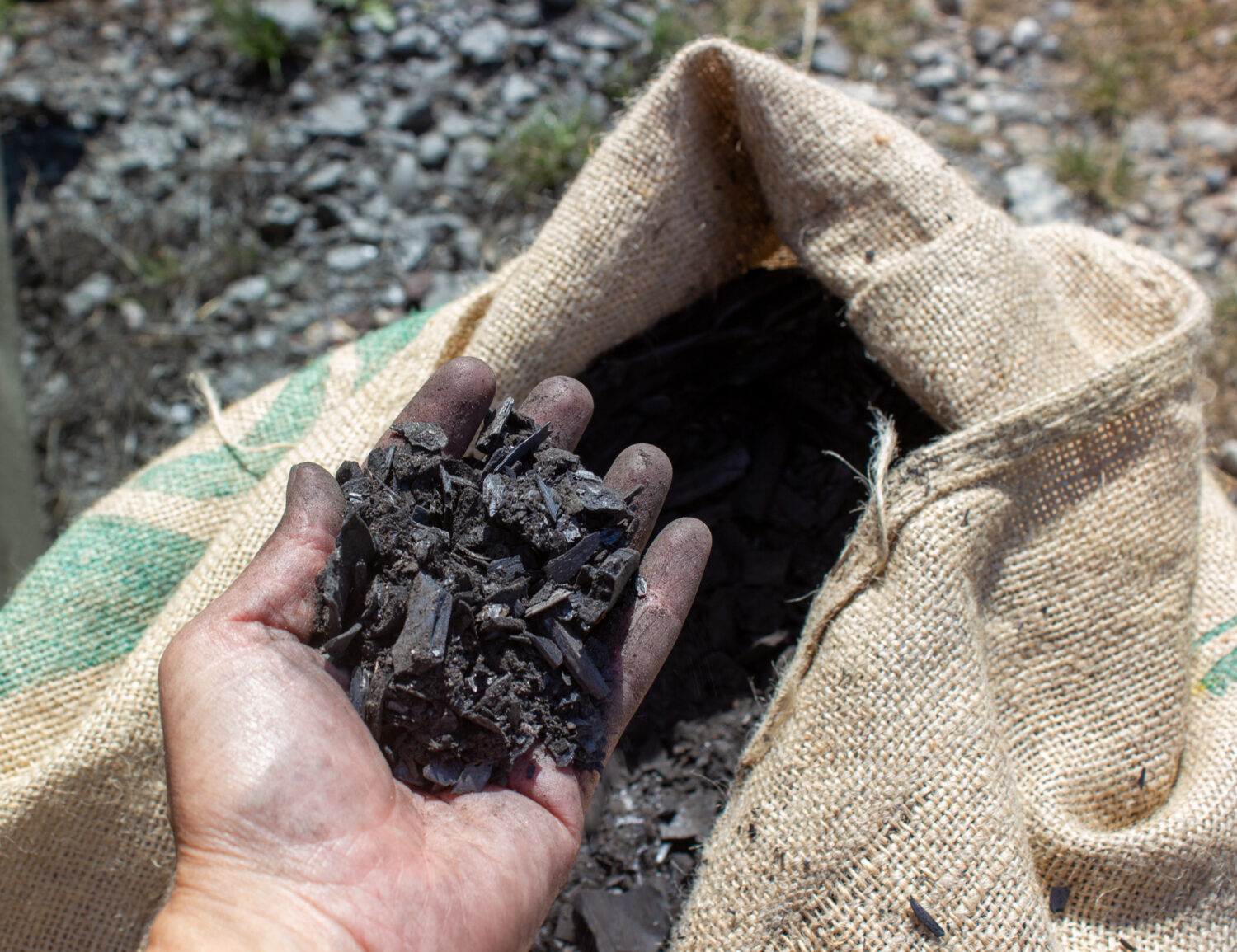Natural Farming with Joshua Sparkes

We really enjoyed a lively and inspiring talk on Natural Farming by Joshua Sparkes at Charleston Festival of the garden. Joshua’s talk focused on how we can produce nutritious food in healthy soil by working harmoniously with nature, gently and without disturbing biological functions.
Traditional farming techniques can, over time, degrade the quality of soil by sapping it of essential nutrients and can eventually damage the land. Natural farming aims to improve soil health permanently by the methods of growing it uses. This creates a circular economy and protects the future of the land. The principles of natural farming include no chemicals, no tillage and no weeding.
By letting nature dominate, it’s possible to create strong, harmonious and regenerative ecosystems that grow productive, nutritious plants – infinitely.
Joshua guided us through some principles of the Korean Natural Farming system (or KNF) which uses the land’s own resources and indigenous microorganisms (IMO’s) to increase microbial activity and diversity in the soil to generate nutrient rich, living soil which grows healthy plants, naturally.
Joshua cultivates his own fungi and bacteria to make various products and solutions used to inoculate the crop soil. The idea of IMO’s is to collect different Microbes that are known to already thrive in the same microclimate as your soil and introduce it to the crop soil. He collects IMO’s from various local places for microbial diversity.
Joshua demonstrated how he cultivates IMO1. First he finds an appropriate culture environment, which in his example is within an untouched area of local woodland. He seeks out a location which is rich in naturally occurring Mycelium (fungi network). A small Cedar box with air holes and protected with meshes (for air circulation and enough protection from wildlife) is part-filled with “al-dente” rice. The box is left at the culture site surrounded by leaves and twigs for a number of days until the rice becomes alive with Mycelium. Joshua referred to this stage as the “cake”.
The “cake” is mixed with brown sugar and left to ferment to make IMO2 which can be stored and used in the soil when needed.

Fermenting plays an important role in KNF, which became more relatable when Joshua drew parallels between feeding the soil and the human digestive system. The importance of abundant and diverse gut bacteria for a healthy human body applies to soil in the same way. Fermenting the organic matter makes the products partially “digested” and therefore more bioavailable to the soil.
Joshua talked us through some other low resource natural farming methods and techniques which all maximise the land’s own resources and functions. Push-Pull Planting for example is used for natural pest management. In Push planting, companion plants such as Alliums are planted alongside crops to “Push” or deter pests from focal crops. The “Pull” method uses plants that attract pests away from focal crops.
Joshua’s practice uses weed mulching to help improve the soil by protecting its surface and retaining moisture which saves on water. Weeds are allowed to grow up around the crops. They are cut back but the root systems are left in place to aid healthy, balanced soil. The cut leaves are used as mulch to cover and protect the soil’s surface and to feed the soil.
Joshua spoke about using biochar in his practice to enrich the soil. We collected some biochar to experiment with from Greenwood Craftsman Rich Ely who produces it locally from surplus Coppiced Sweet Chestnut wood. Burning the wood to charcoal preserves it from rot and fungus and Rich explained that the tubular structure within the Sweet Chestnut provides perfect habitats for tiny living things in the soil. Rich clarified that biochar, despite its recent spike in popularity is not a new technology and it has long been known and used to retain moisture, nutrients in soil and improve its health over time.

With the current drought and hosepipe bans sweeping the UK, it’s becoming more obvious that we need to be using lower resource methods of growing to future proof our land and food production. The Natural Farming model is a great example of how we can protect and care for our land and in return we can continue to grow productive, more nutritious food. We will be putting some Natural Farming techniques into practice in our own gardens so will try and share some of those experiments!
Thanks to Joshua Sparkes for such a fascinating talk delivered with infectious energy. Thank you also to Charleston for such a great event!